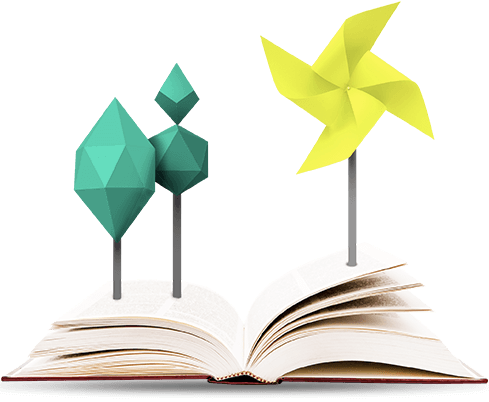Wo master - Aarde en Milieu
Earth Sciences
Varianten: Earth, Life and Climate, Earth Surface and Water, Earth Structure and Dynamics, Marine Sciences

Over de opleiding Open dag: 8 oktober

Wil je een expert worden op het gebied van de aarde, haar processen en de impact op de wereld? Dan is één van de masteropleidingen aan de Universiteit Utrecht een goede keuze voor jou!
Aardwetenschappen in het kort
De Aardwetenschappen dragen bij aan antwoorden op een breed scala aan maatschappelijke en economische vraagstukken op gebieden zoals:
* de natuurlijke bestaansmiddelen (water, grondstoffen, de energietransitie).
* het terrestrische milieu (beïnvloed door klimaatverandering, maar bijvoorbeeld ook door het zoeken naar nieuwe methoden om vervuiling te saneren).
* natuurlijke gevaren en rampen (zoals aardbevingen, vulkaanuitbarstingen en overstromingen).
* het veilige, verantwoorde en duurzame gebruik van land- en ondergrondse ruimte.
Onze masteropleidingen (MSc)
Binnen het vakgebied Aardwetenschappen bieden wij verschillende masteropleidingen aan:
* Earth, Life and Climate
* Earth, Structure and Dynamics
* Earth, Surface and Water
* Marine Sciences
Keuzes binnen de opleiding
-
Earth, Life and Climate is een interdisciplinaire studie naar de processen die het klimaat, het milieu en biotische reacties in het verleden, heden en de toekomst beïnvloeden.
Deze masteropleiding onderzoekt de mechanismen die de dynamiek van sedimentaire systemen, biodiversiteit en klimaat reguleren, evenals hun evolutie. Studenten verwerven de kennis om klimaatverandering en de impact ervan op natuurlijke omgevingen zoals bodems, sedimenten, meren, grondwater, wetlands, estuaria en oceanen te begrijpen.
Belangrijke thema’s binnen het programma zijn onder andere: evolutie van het leven, ontwikkeling van sedimentaire bekkens, koolstofbronnen en -opslag, biogeochemische en geochemische kenmerken van sedimentaire processen en milieus, en klimaatreconstructie.
Studenten leren state-of-the-art reconstructiemethoden, modelleertechnieken en laboratoriumexperimenten toepassen, die relevant zijn voor diverse vakgebieden zoals biogeologie, paleontologie, sedimentologie, stratigrafie, milieugeochemie, hydrologie, geologie, biologie, klimaatdynamica en paleoceanografie.
Met deze vaardigheden voeren studenten hun eigen onderzoeksprojecten uit of nemen ze deel aan stages ter voorbereiding op een internationale carrière in toegepast of fundamenteel onderzoek.
Kennismaken met deze variant?
-
Earth Surface and Water is de studie van fysieke fenomenen binnen de aardse omgeving, hun ruimtelijke en temporele kenmerken en de evolutie ervan naar onze moderne wereld.
Het programma Earth Surface and Water richt zich op de dynamiek van kust- en riviersystemen, (geo)hydrologische processen en de evolutie van deze systemen als reactie op wereldwijde veranderingen. Studenten krijgen diepgaande kennis van de processen die de fysische omgevingen van de aarde beheersen, evenals hun ruimtelijke en temporele kenmerken en onderlinge relaties.
De belangrijkste themagebieden binnen de opleiding omvatten de dynamiek van kust- en riviersystemen, (geo)hydrologische processen, en de impact van mondiale veranderingen op deze systemen. Studenten leren geavanceerde methoden voor reconstructie, modelleringstechnieken en laboratoriumexperimenten die worden toegepast op verschillende aspecten van de aarde en beta-wetenschappen.
Het programma Earth Surface and Water richt zich specifiek op het aanpakken van mondiale veranderingen en de invloed ervan op de natuurlijke omgeving, waaronder bodems, sedimenten, meren, grondwater, wetlands, estuaria en oceanen. Daarbij wordt ook gekeken naar hoe menselijke activiteiten de fysieke omgeving beïnvloeden, met inbegrip van de hydrologische cyclus.
Kennismaken met deze variant?
-
Earth Structure and Dynamics is de studie van de samenstelling, structuur en evolutie van de aardkorst, mantel en kern.
Het programma Earth Structure and Dynamics verbindt geologische, geofysische, geochemische en geodetische waarnemingen aan het aardoppervlak met fysische processen binnen de planeet.
et programma kan worden gezien als een combinatie van natuurkunde, scheikunde, wiskunde, geologie en veldstudies om te begrijpen hoe de vaste aarde werkt. Het biedt specialisatiemogelijkheden in vrijwel elk aspect van Solid Earth Science, variërend van theoretische geofysica tot pure geologie of geochemie, waarbij veel studenten kiezen voor een gecombineerde geologie-geofysica focus.
De belangrijkste onderwerpen binnen het programma omvatten seismologie, tectonofysica, manteldynamica, structurele geologie, metamorfose, magmatische processen, bekkenontwikkeling, koolwaterstof- en mineraalafzettingen, en de eigenschappen van aardse materialen. Studenten onderzoeken processen die variëren van langzame geodynamische processen—zoals mantelconvectie, plaattektoniek en gebergtevorming—tot processen die binnen een mensenleven impact kunnen hebben. Dit omvat actieve korstdeformatie, seismische activiteit en vulkanisme, evenals bodemdaling, opheffing en door koolwaterstofproductie en geologische CO₂-opslag geïnduceerde seismiciteit.
Kennismaken met deze variant?
-
Marine Sciences bestudeert hoe mariene systemen en processen van nature functioneren en hoe ze veranderen door menselijke ingrepen.
Zeeën en oceanen spelen een belangrijke rol in ons dagelijks leven, en meer dan 65% van de wereldbevolking woont of werkt in kustgebieden. Zeeën en oceanen zijn van essentieel belang voor onze economie en gezondheid – evenals voor klimaat, voedsel en biodiversiteit – en hebben een enorme maatschappelijke betekenis. Echter, de oceanen veranderen snel door door de mens veroorzaakte vervuiling en CO₂-uitstoot, wat leidt tot opwarming van de aarde en verzuring van de oceaan. De gevolgen voor organismen, oceaanchemie en stromingen op korte en lange termijn zijn onzeker, wat zowel het bedrijfsleven als beleidsvorming beïnvloedt.
Als onderdeel van jouw tweejarige masterprogramma in Marine Sciences leren studenten hoe mariene systemen en processen van nature functioneren – en hoe ze veranderen door menselijke ingrepen. Het programma biedt multidisciplinaire en geavanceerde kennis in dit snel ontwikkelende vakgebied.
Kennismaken met deze variant?
- + Meer
Op Studiekeuze123 kun je informatie vergelijken. Op de website van de onderwijsinstelling kun je verder lezen als de opleiding je aanspreekt.
Bekijk instellingswebsiteBekostiging: Overheid
Studiepunten: 120 ECTS
Toelating & selectie € 2.601 wettelijk collegegeld in 2025 / 2026

Om toegelaten te worden tot een opleiding moet je aan bepaalde eisen voldoen.

Toelatingseisen
Om aan een master te kunnen starten, heb je een bachelordiploma nodig.
Sluit je bachelor niet direct aan op de master, of stroom je door van hbo naar wo? Dan moet je meestal een schakelprogramma of premaster volgen. Lees meer over schakelprogramma’s (Schakelprogramma, is dat nodig? - Studiekeuze123)
Collegegelden
Wettelijk collegegeld
Wettelijk collegegeld
Wettelijk of instellingscollegegeld?
Heb je recht op het wettelijk collegegeld of betaal je het instellingscollegegeld? Gebruik onze Collegegeldwijzer
Hoe hoog is het instellingscollegegeld? Bekijk het op de website van de universiteit
Meer weten?
Belangrijke data 1 juni aanmelddeadline opleiding

Mis geen belangrijke gebeurtenissen. Check belangrijke data ook bij de opleiding zelf.

-
1
juni 2025
Aanmelddeadline opleiding -
1
september 2025
Start opleiding
Alle startmomenten -
8
oktober 2025
Open dag / avond
Meer open dagen
Tijdens de opleiding 192 eerstejaars

Geen enkele opleiding is hetzelfde. Kijk daarom naar de kenmerken van een opleiding.

Studeren bij deze instelling
Studieadvies
We hebben onvoldoende betrouwbare informatie over dit onderwerp.
Studieverloop
Diploma binnen 3 jaar
Meer weten?
Tevredenheid 4.0/5.0 algemene tevredenheid

Hoe beoordelen de (oud)studenten deze opleiding?

Nationale Studenten Enquête
Hoe tevreden waren studenten in 2024 over aspecten van deze opleiding?
|
Deze opleiding
Universiteit Utrecht |
Landelijk gemiddelde
Earth Sciences Vergelijk alle 3 opleidingen |
verschil | |
|---|---|---|---|
|
Studenttevredenheid
Meer informatie | 4.0 / 5 | 4.0 / 5 | |
| Sfeer | 4.4 / 5 | 4.4 / 5 | |
| Studiefaciliteiten | 4.1 / 5 | 4.0 / 5 | |
| Studie opnieuw kiezen | 4.1 / 5 | 4.0 / 5 | |
| Inhoud en opzet | 4.0 / 5 | 3.9 / 5 | |
| Aansluiting beroepspraktijk | 3.3 / 5 | 3.3 / 5 | |
|
Studenttevredenheid
Meer informatie | 4.0 / 5 | 4.0 / 5 | |
| Sfeer | 4.4 / 5 | 4.4 / 5 | |
| Studiefaciliteiten | 4.1 / 5 | 4.0 / 5 | |
| Studie opnieuw kiezen | 4.1 / 5 | 4.0 / 5 | |
| Inhoud en opzet | 4.0 / 5 | 3.9 / 5 | |
| Aansluiting beroepspraktijk | 3.3 / 5 | 3.3 / 5 | |
| Docenten | 4.1 / 5 | 4.1 / 5 | |
| Lesstof in het Engels | 4.4 / 5 | 4.4 / 5 | |
| Studiebegeleiding | 3.7 / 5 | 3.6 / 5 | |
| Toetsing en beoordeling | 3.7 / 5 | 3.8 / 5 | |
| Betrokkenheid en contact | 4.0 / 5 | 4.0 / 5 | |
| Studiedruk |
Oordeel afgestudeerden
Over de studie Earth Sciences
Studeren met een ondersteuningsbehoefte
Veel studenten hebben tijdens hun studie behoefte aan extra voorzieningen of flexibiliteit in het onderwijs. Dit kan komen door een aandoening zoals dyslexie, een chronische ziekte, psychische klachten, maar ook topsport of ondernemerschap tijdens de studie. Studenten beoordeelden hoe tevreden ze zijn over de ondersteuningsmogelijkheden bij hun onderwijsinstelling.
Na afstuderen 63% van de werkenden vond een baan op niveau

Lees hoe het studenten van deze opleiding in de eerste periode na hun studie vergaat op de arbeidsmarkt.

De meeste informatie die je hier ziet geeft een inkijkje in de situatie van afgestudeerden aan deze opleiding 1,5 jaar nadat ze zijn afgestudeerd. De informatie heeft betrekking op de studie Earth Sciences en niet alleen over de opleiding aan deze instelling. Ben je nieuwsgierig hoe we aan de informatie zijn gekomen? Klik dan bij de verschillende onderwerpen op 'Meer informatie'.
Meest gekozen beroepen (na deze studie)
| Professoren en andere onderwijsgevenden in het hoger onderwijs | 26% |
| Geologen en geofysici | 15% |
Een (substantiële) baan vinden...
duurt gemiddeld 5 maanden.
46% krijgt een vast contract.
Match tussen studie en beroep
83% vond een baan binnen het vakgebied van de studie
63% vond een baan op het niveau van de studie
Startsalaris
Het startsalaris na deze studie is lager dan het gemiddelde van alle wo master studies.
€ 2.980
Geschatte startsalaris na deze studie
€ 3.150
Geschat van alle wo master studies
Gemiddelde werkweek
Hoeveel uur afgestudeerden gemiddeld werken bij hun huidige baan.
37 uur
Het percentage zelfstandigen
We hebben onvoldoende betrouwbare informatie over dit onderwerp.
Contact Contact 030 - 2533550

Meer weten over de opleiding? Neem contact op met Universiteit Utrecht


Meer informatie
Bezoek ook de website van Universiteit Utrecht
Bezoek website van Universiteit Utrecht



